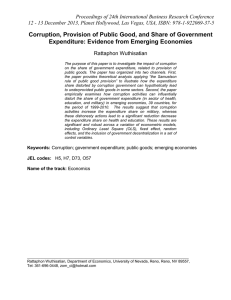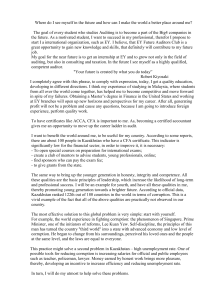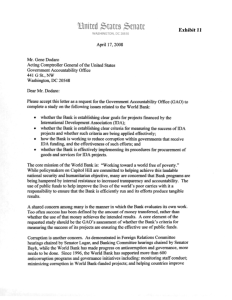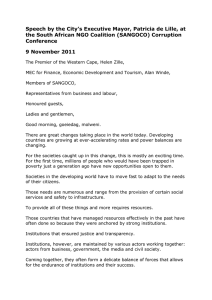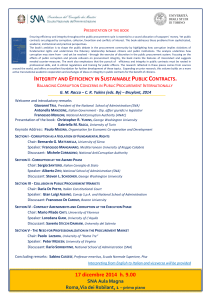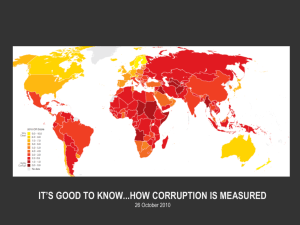NATIONAL ASSEMBLY
advertisement
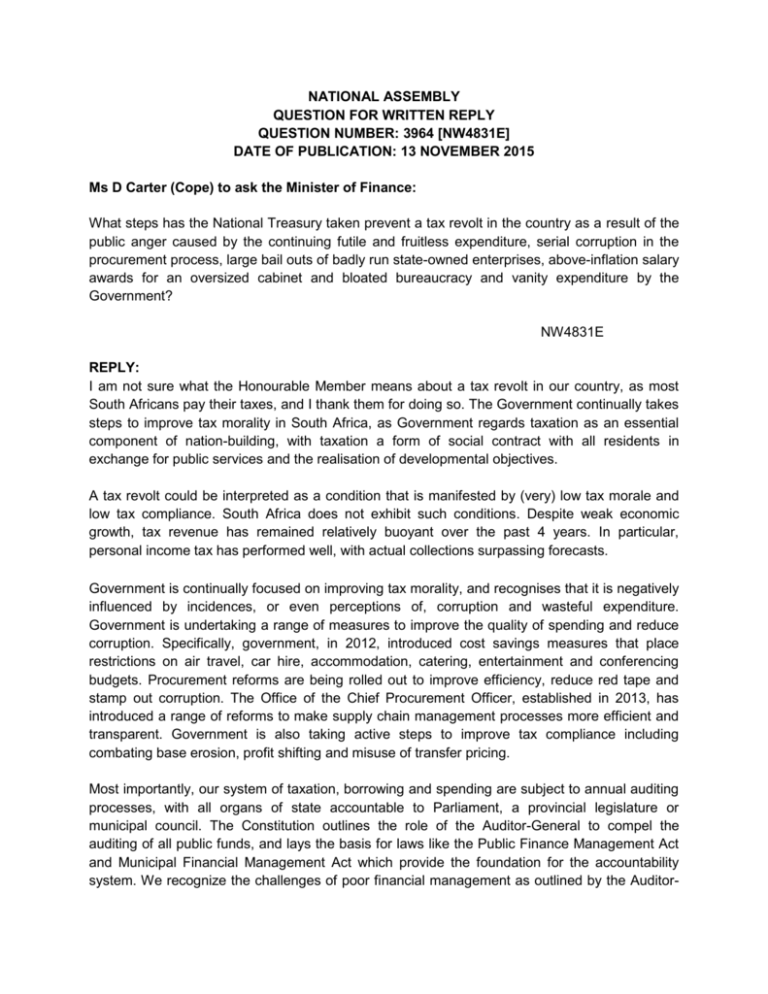
NATIONAL ASSEMBLY QUESTION FOR WRITTEN REPLY QUESTION NUMBER: 3964 [NW4831E] DATE OF PUBLICATION: 13 NOVEMBER 2015 Ms D Carter (Cope) to ask the Minister of Finance: What steps has the National Treasury taken prevent a tax revolt in the country as a result of the public anger caused by the continuing futile and fruitless expenditure, serial corruption in the procurement process, large bail outs of badly run state-owned enterprises, above-inflation salary awards for an oversized cabinet and bloated bureaucracy and vanity expenditure by the Government? NW4831E REPLY: I am not sure what the Honourable Member means about a tax revolt in our country, as most South Africans pay their taxes, and I thank them for doing so. The Government continually takes steps to improve tax morality in South Africa, as Government regards taxation as an essential component of nation-building, with taxation a form of social contract with all residents in exchange for public services and the realisation of developmental objectives. A tax revolt could be interpreted as a condition that is manifested by (very) low tax morale and low tax compliance. South Africa does not exhibit such conditions. Despite weak economic growth, tax revenue has remained relatively buoyant over the past 4 years. In particular, personal income tax has performed well, with actual collections surpassing forecasts. Government is continually focused on improving tax morality, and recognises that it is negatively influenced by incidences, or even perceptions of, corruption and wasteful expenditure. Government is undertaking a range of measures to improve the quality of spending and reduce corruption. Specifically, government, in 2012, introduced cost savings measures that place restrictions on air travel, car hire, accommodation, catering, entertainment and conferencing budgets. Procurement reforms are being rolled out to improve efficiency, reduce red tape and stamp out corruption. The Office of the Chief Procurement Officer, established in 2013, has introduced a range of reforms to make supply chain management processes more efficient and transparent. Government is also taking active steps to improve tax compliance including combating base erosion, profit shifting and misuse of transfer pricing. Most importantly, our system of taxation, borrowing and spending are subject to annual auditing processes, with all organs of state accountable to Parliament, a provincial legislature or municipal council. The Constitution outlines the role of the Auditor-General to compel the auditing of all public funds, and lays the basis for laws like the Public Finance Management Act and Municipal Financial Management Act which provide the foundation for the accountability system. We recognize the challenges of poor financial management as outlined by the Auditor- General in his various reports and recognize that more needs to be done to bring those responsible for non-compliance or corruption to book.
